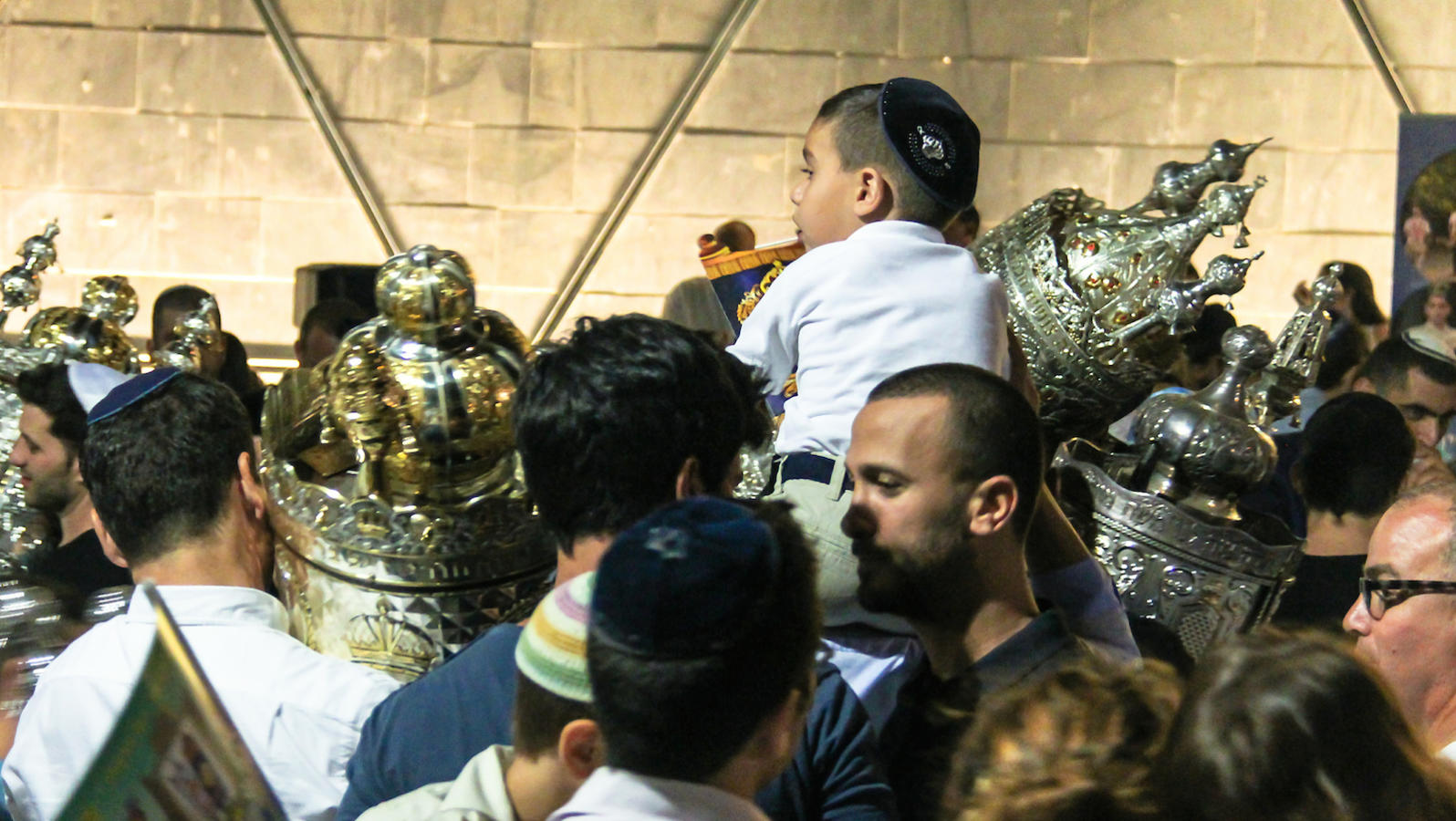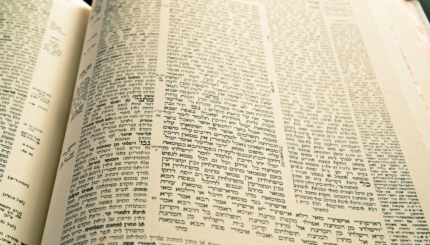I did not have Simchat Torah this year. Bold statement, right? Some of you are probably thinking that I must not be observant, because how could a good Jewish girl miss such an important holiday? Well, I’ve had a long and complicated relationship with Simchat Torah. So if I start at the beginning, maybe you will come to understand my point.
When I was little, as in elementary school little, I loved Simchat Torah. I ran around the synagogue with my friends, danced with my dad, and got loads of candy. I had a blast, and looked forward to it each year. Then, I turned 12 and celebrated my Bat Mitzvah. Now, I could no longer dance with the men in my synagogue and I was relegated to the balcony with the women. At the time, I was a bit nostalgic for the good old days, but I still enjoyed the holiday. You see, watching from the women’s balcony as the men danced below with the Torahs was all I knew. So I enjoyed the holiday and spent it chatting with my mom and friends. And my relationship with Simchat Torah proceeded like that until I graduated from high school and attended Midreshet Lindenbaum, a women’s seminary in Israel.
Initially, when I saw women at Midreshet Lindenbaum dancing with the Torahs and leading hakafot, the processionals, I was overwhelmed by this newness. Where I grew up, women did not even kiss the Torah, let alone carry it and dance with it. But by the end of the holiday, I had become comfortable with this new concept. I had accepted that women could interact with the Torah in a religious and meaningful way. I realized that a world existed where I could celebrate Simchat Torah, the celebration of the Torah I lived by every day and studied my entire life, with the actual Torah. But what would happen on the next Simchat Torah, after I left Midreshet Lindenbaum and returned to the United States? You see, I was at a tipping point in my relationship with the holiday. At this point, I could still return to the women’s balcony and write off my seminary experience as a chavaya, a one-time experience. But instead, I went over the other edge.
I spent four years at the University of Maryland, College Park, where Simchat Torah became my favorite holiday. I danced around the Torah, I held the Torah, and I fell in love with the Torah. The ruach, the energy, the sheer excitement was so contagious. It was not only the men who danced their socks off, but the women too! Every year at the University of Maryland, I went to Simchat Torah services expecting to come home with aching feet and drenched in sweat. I was a member of a community where both women and men loved the Torah equally and displayed that affection publicly.
At our Simchat Torah celebration, there was something for everyone. There were women’s aliyot if that was your thing, and there was “Torah Dash,” where men and women gave thirty-second divrei Torah on every portion in the Torah while community members received their aliyot. There was even a Kallah Torah and Kallah Bereishit, honors given to women of the community, in addition to the traditional honors, Chatan Torah and Chatan Bereishit, given to men. Women were integral members of the Simchat Torah celebration in College Park, and I felt like my presence was meaningful and positively impacted the community.
Simchat Torah of my senior year was bittersweet. I had an amazing time, and had the honor of leading the community in two hakafot, together with my fellow graduating seniors and community leaders. But the dark cloud of impending doom loomed over me. I was depressed enough about leaving the University of Maryland Jewish community for many reasons, but I felt even more upset on this holiday. I wondered: Would I ever dance with a Torah again? Would I love the celebration of the holiday wherever I was in one year’s time? I suppressed these thoughts, not wanting my fears of the future to ruin what might possibly be my last chance at Simchat Torah happiness.
So what was my Simchat Torah like this year, my first year post-college? Well, it was not Simchat Torah.
It was like any old holiday. I went to synagogue, watched the men do things on the other side of the mechitzah, and socialized with the other women as we stood around with nothing to do. My husband later asked me if I heard them sing this song and that song, and if I had seen him carry a Torah. No, I did not hear the songs they sang, and no, I could not see who carried the Torah. As I watched the men dance with my Torah, I felt utterly invisible and extremely empty. I had been so far removed from the celebration, that I had no longer had any part in it. This time when I was relegated to the women’s section, I was not okay with it. I had tasted the forbidden fruit of equality and religious expression and I was not content being downgraded from a passionate participant to an irrelevant bystander.
Torah
Pronunced: TORE-uh, Origin: Hebrew, the Five Books of Moses.




